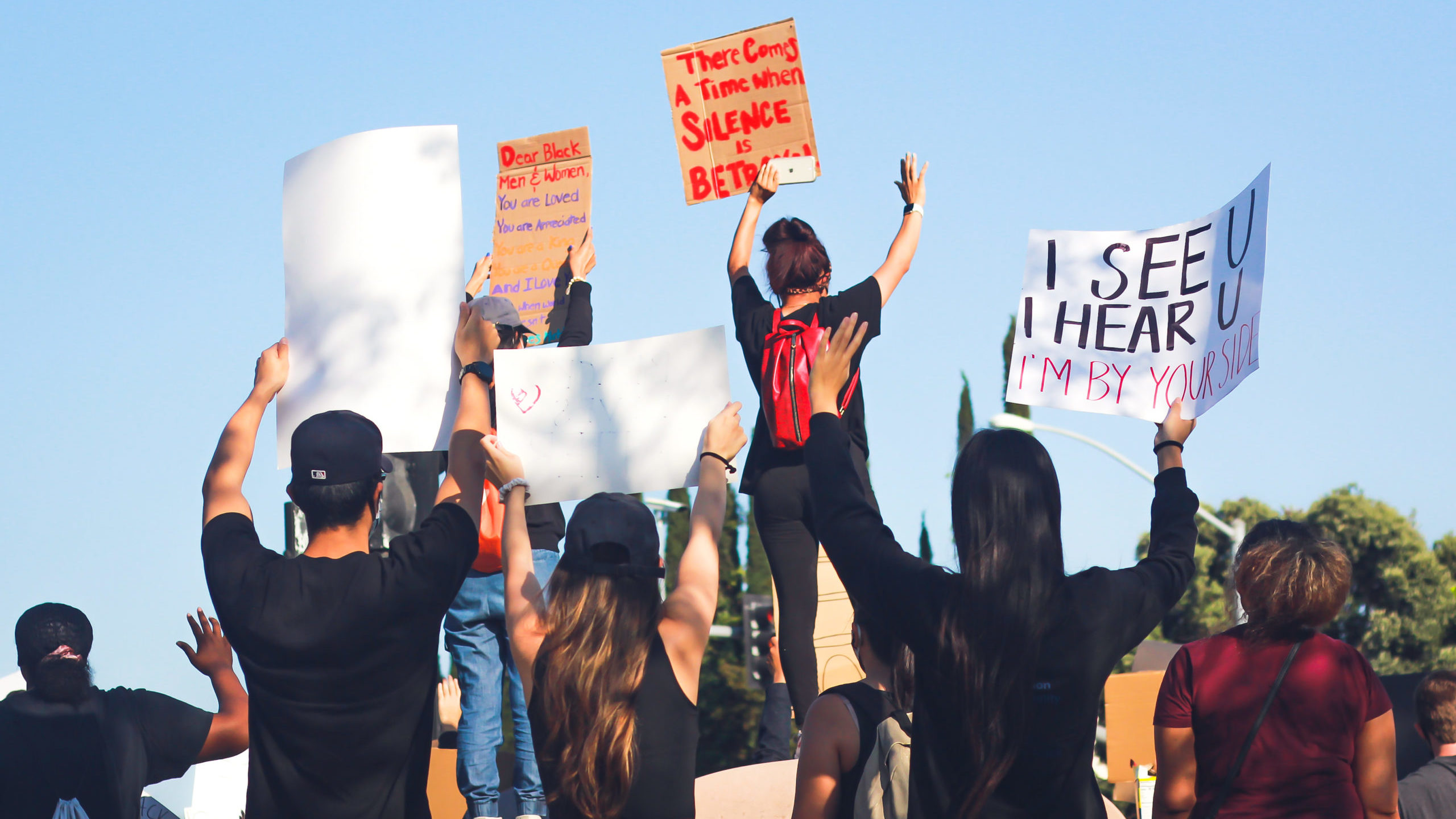Navigating Black Lives Matter is hard when I know that every time I open my mouth my British accent reveals that everything I have been given is deeply rooted in the empire that pillaged Africa and India. Without that pillage Britain would have been, as Orwell said “a cold and unimportant little island where we should all have to work very hard and live mainly on herrings and potatoes.” Growing up comes at you hard sometimes. I didn’t grow up listening to NWA (I was all about The Clash) but recently I found myself trying to keep up with a bevy of high schoolers variously blasting YG and NWA even though they likely have no idea what a “pager” might be. But showing up is important to me, so there I was trying to dance in steel toed boots with a teenager in a hijab, forced to acknowledge the painful reality that I am in my thirties and I dance like a drunk giraffe.
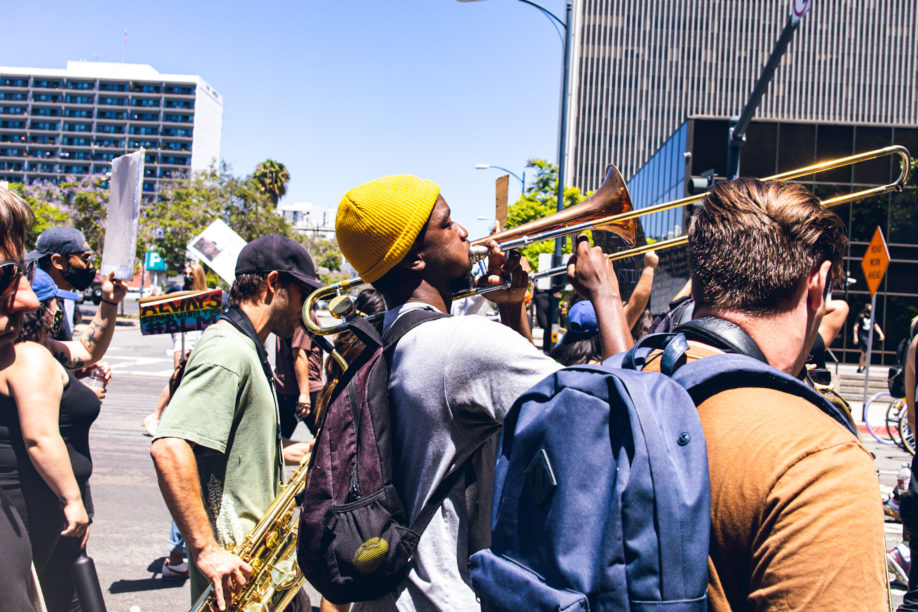 photo: Chris Cameron
photo: Chris CameronWhen I was the age of the kids dancing in the street, I was burying myself in the libraries of Oxford University. I took every class on anarchism, justice, and the history of the left they’d let me into. But I learned my politics drinking warm beer from a can in the streets of Barcelona and sneaking around the woods of Scotland trying to make a nuisance of myself at G8 rallies assisted by my great aunt’s encyclopedic knowledge of the area. When BNP members threw slurs at a friend, I forgot about all my books and threw back punches instead.
These kids learned their politics when they opened their phones and saw someone like them being murdered again, and again, and again. Or when they got pulled over for not-speeding, or when they were followed around in a store they weren’t trying to rob. Their politics came to them when all that shit happened and none of us showed up to help. I don’t know what that feels like, and I don’t believe Bookchin has ever written anything they need to hear.
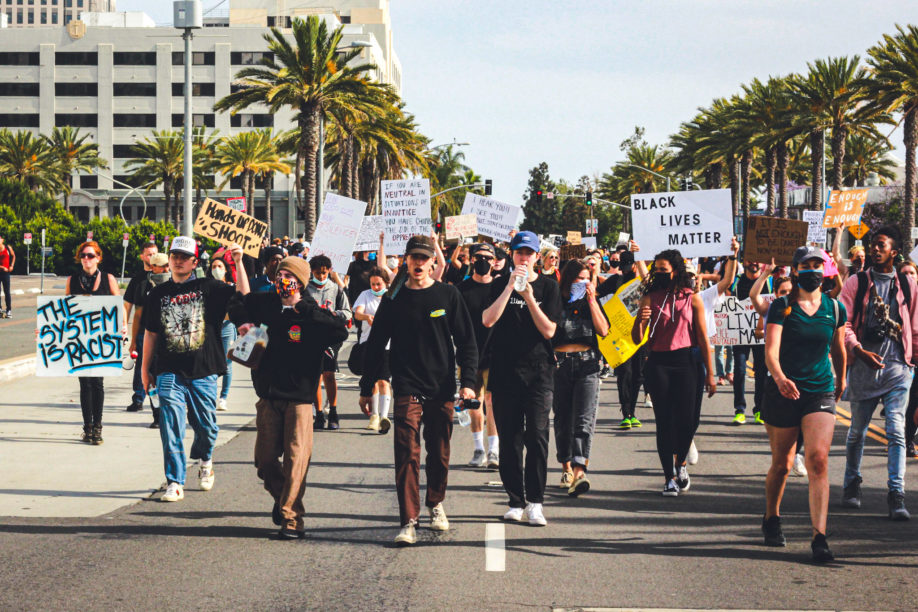 photo: Chris Cameron
photo: Chris CameronObviously, saying sorry isn’t going to cut it, and restoring the economic balance isn’t either, though that doesn’t mean we can’t start there. As an activist and a historian, I know that we make history in the streets and most often it’s not by asking nicely either. The Molotov cocktail has moved history forward every bit as much as Marx.
Britain doesn’t train police to be some kind of hybrid of the brownshirts and Robocop, but my country was built on the backs of people stolen from Africa, just like the USA, and so this is my responsibility, and that of everyone else living in a country that grew rich off colonial exploitation and slavery. I liked editor and journalist Alex Colston’s response to the tossing in the ocean of a statue of the slaver who shares his surname: “family lore has it we are distantly related to the Colstons of Bristol. I am no heir beyond a shitty surname associated with vile historical practices. Anyways, donate to BLM orgs and get out in the street if you can.”
BIPOC Revolutionaries are far too often forced to pick from a handful of dead white men if they want support. That isn’t solidarity, it’s just a more subtle form of colonialism. Revolutionaries in the late-20th and 21st century have infuriated the bearded gatekeepers of the intellectual left with their refusal to quote ideologies based on industrial capitalism when they found themselves struggling against neoliberal colonialism in Chiapas and Rojava. But when white men like me listened, we learned.
As journalist Wilfred Chan has said “If the Western left wants to shriek about Hong Kongers becoming more and more right-wing, it should look to itself and its own refusal to listen to Hong Kongers as a key reason why.” If you need a dead white guy to help you grasp what this means, read Jean Paul Sartre’s introduction to Fanon, a Black French West-Indian revolutionary in Algeria. My grandmother’s old copy of the book is right here in my office, she gave it to me when I was 18 and lacking thewords to explain why I was angry at the world. Whenever I pick up that book, and read the section Sarte wrote “on violence” I remember that colonialism consisted as much in forcing our ideologies on people as surely as it did in forcing chains theirs hands.
But rather than quoting an old dead white guy, let me quote a revolutionary from a movement that eschewed ideology and instead embraced indigenous democracy. “It’s not necessary to conquer the world. The one we can make anew will suffice. Ourselves. Today .”
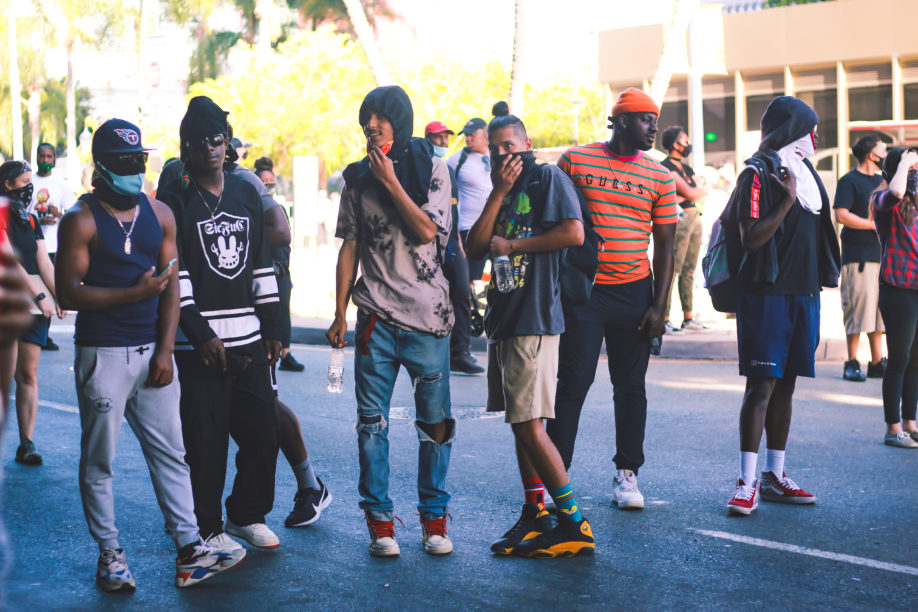 photo: Chris Cameron
photo: Chris CameronThis isn’t the protest movement I grew up in. The first thing I did when I saw the town I live in step up to confront state violence on Black bodies was grab a keffiyeh, a solid pair of boots, and a hard hat. But it turns out nobody shows up like that anymore. People don’t sing Bella Ciao, or shout Ya Basta. Maybe they never did, here in California. Since I moved to the US it has been empowering for me as to learn new songs and slogans from the younger folks I find myself shouting, running, chanting, and sometimes dancing with.
When I’m not waffling on the internet, I write about foreign anti fascists who crossed continents to defend the Spanish Republic. Among them were 80 Black American volunteers who crossed the Atlantic to fight someone else’s war, because they knew the fight against fascism abroad was the same one they fought every day against racism at home. The Republic didn’t tell them what to believe, it said “thanks for being here” and gave them a gun and a uniform and directions towards the fascists.
Like most historians, I write about this shit because I am sad that I missed it. In 1936, when a telegram was a luxury, people showed up to stick up for each other. They didn’t succeed, but three years later the world took up their struggle against fascism. It’s largely up to us: Is this 1936, when the US and UK abandoned democratic Spain and left it to die at the hands of fascists, or 1939, when the world finally confronted and defeated fascism? If we show up now, and don’t leave, change will come. If we don’t, it’ll be like every other time this has happened, and nothing changed.
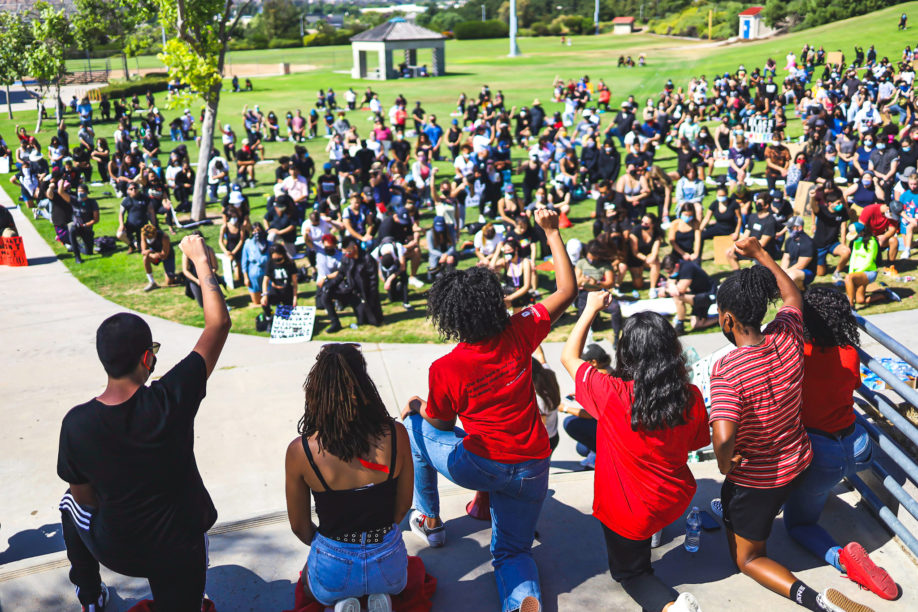 photo: Chris Cameron
photo: Chris CameronIn 1995 our whole village gathered around the only satellite TV in town to watch the 1995 Rugby World Cup final. I liked Rugby, but what I remember from that day is watching a giant of a white rugby player in Francois Pinaar raising a massive trophy and being entirely overshadowed by the towering importance of the man next to him, Nelson Mandela. I was raised at British football matches in the 1990s, so I have a fairly high threshold for mad sports fans, but even at eight, I knew something massive was happening. Apartheid fell in South Africa, not just because Nelson Mandela, uMkhonto we Sizwe, and the African National Congress fought a brave and unrelenting battle, but also because people all over the world raised their voices against it.
Years later I took a philosophy class taught by a white South African priest who’d had to leave his country because he’d fought against the regime that locked Mandela away and tried to kill him. Every single time I got in trouble with the police for protesting something, he was the one I called. He taught me that showing up means more than studying or writing, it means being prepared to give something up. He died without ever returning to see his home and his family because he had decided to use his share of privilege to destroy as much privilege as he could.
People like my teacher got out in the streets of London and New York until British and US governments who had previously categorized Nelson Mandela as a terrorist came to see him as a freedom fighter. If you think the US is a million miles from South Africa in 1990, it’s not.
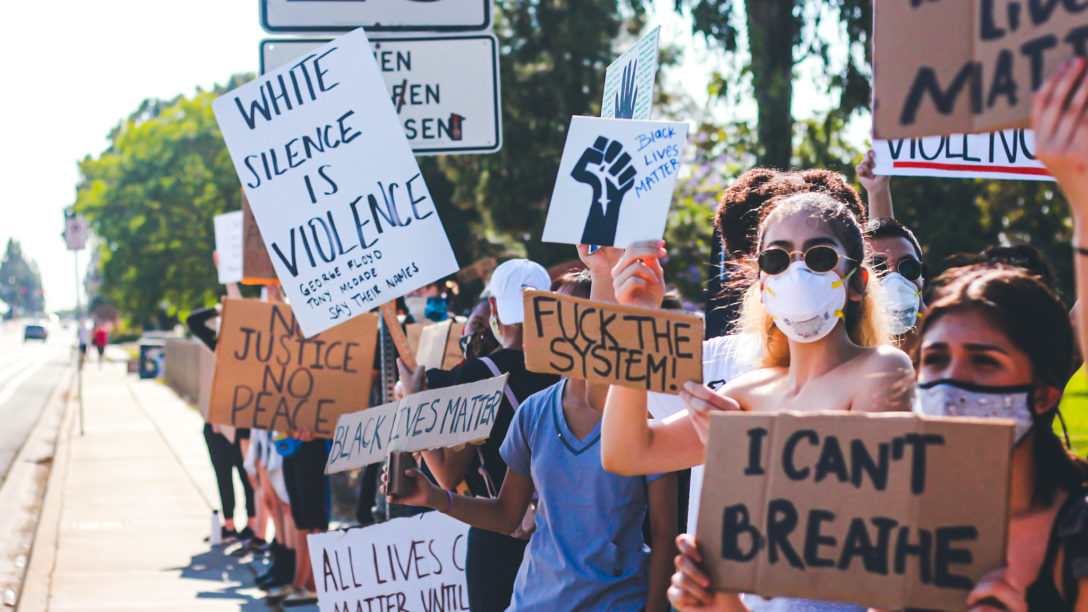 photo: Chris Cameron
photo: Chris CameronAll over the world, people have shown up for George Floyd. My family back home are a bit lost as to why an innocent man’s murder in Minneapolis caused a dead slave trader’s statue to be torn down in Bristol, or King Leopold’s statue in Antwerp to be set on fire. But the internet and the camera phone have done away with the notion that colonialism rests on anything other than violence, or that colonialism isn’t alive and well. We might speak the language of equality and rights, but every time the state wants something from a person of color, it speaks with with bullets and bloodshed. The brutal reality of 8 minutes 46 seconds of a man dying can’t be spun any other way.
In the UK, Boris Johnson took to the television to tell us that Black Lives Matter, but also that he didn’t support the symbolic removal of a man who made a living transporting 80,000 Africans and killing 19,000. When you defund the state healthcare and education systems that protect those people, you don’t get to just say Black Lives Matter and pretend you’re helping. This movement doesn’t need leadership from Boris Johnson. We’ve never had more access to each other, more ability to see and hear each other’s pain, and people like Boris Johnson have never had less power to deny it.
In a matter of weeks, people in the US have got more done than elected officials have in decades. The protests now have spread all over the world in a way that we haven’t seen since 1961. in the 1960s, colonized people from Vietnam, Algeria, and the Indigenous nations of the United States changed the world and didn’t wait for permission from the scholars whom they were rapidly making irrelevant. If we are willing to listen to and support the movements today, we can do the same again and build an international intergenerational left that can remain connected by the same networks that made George Floyd’s death a global catalyst for generations of trauma. Frankly, after making those kids watch me dance, listening to them is the least I can do.
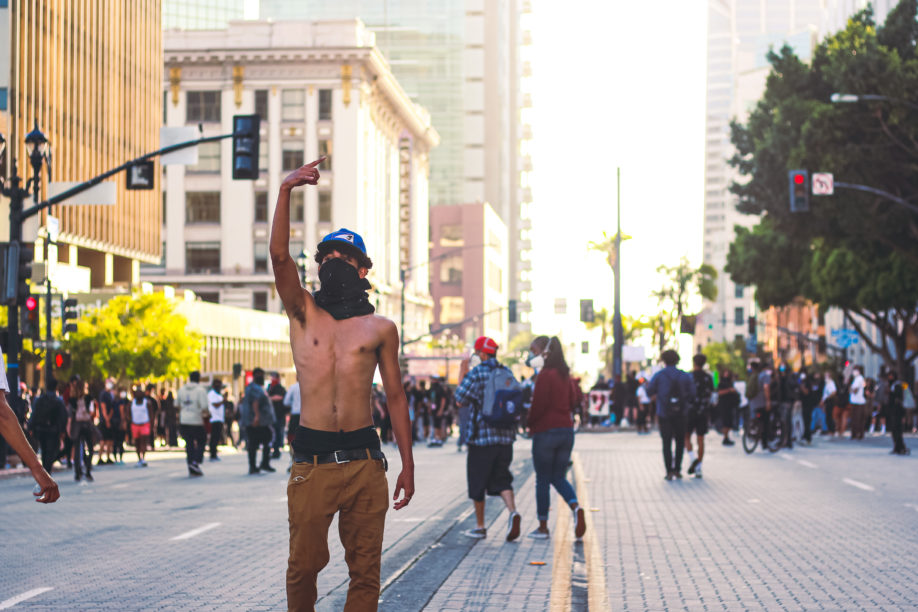 photo: Chris Cameron
photo: Chris Cameron
